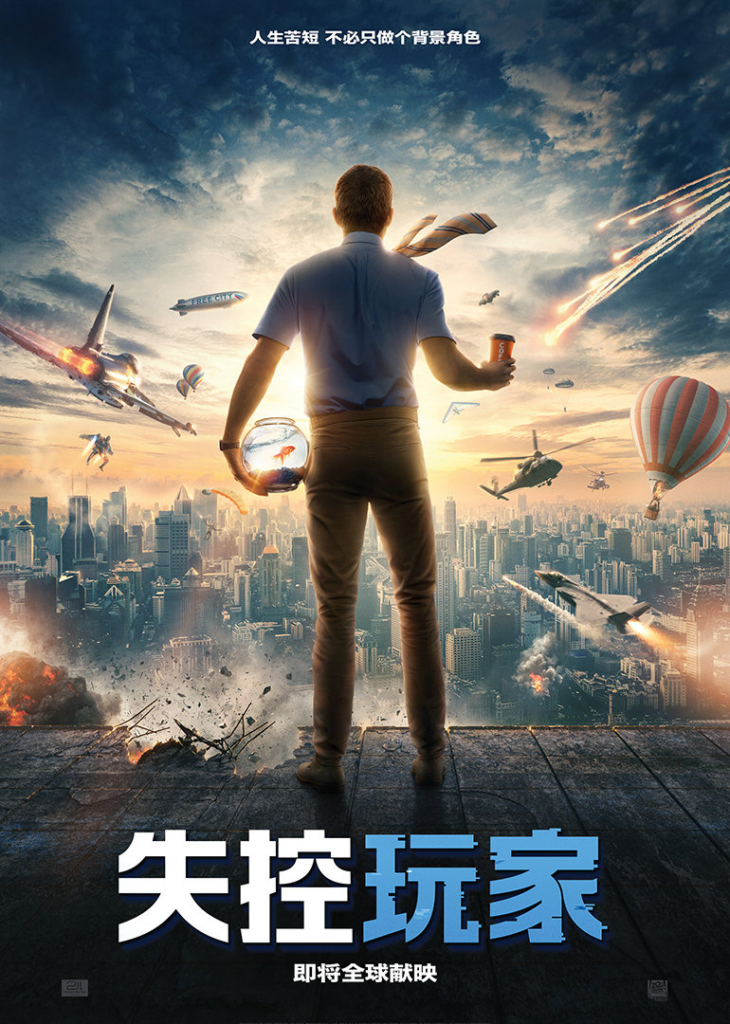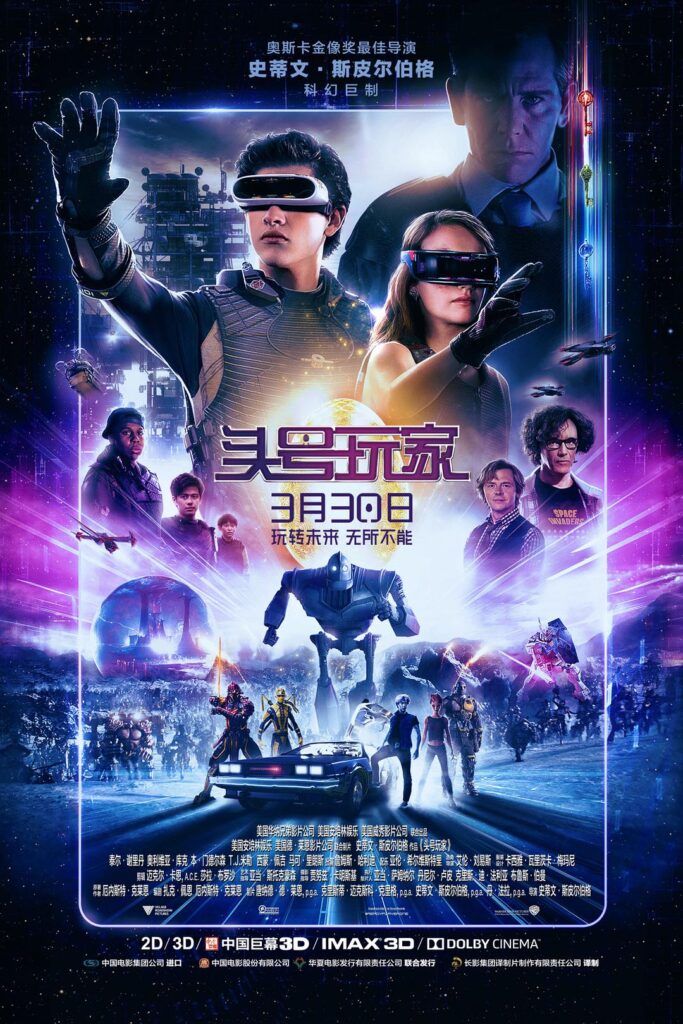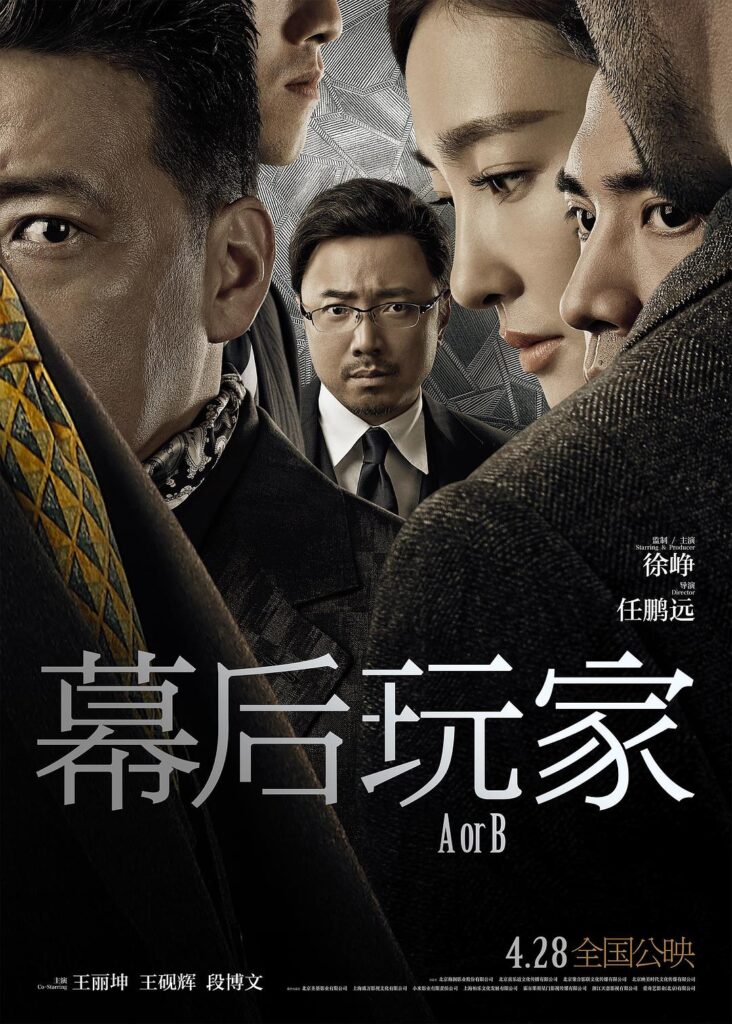Movie Titles in Chinese: Translations or Labels?
I enjoy examining the translations of brand names, book titles, and movie titles. They’re important for many reasons, so quite a bit of thought should have gone into their selection. Indeed, many translations of this kind are brilliant and well worth studying. One glaring exception, though, are the names of many Hollywood movies released in Mainland China.
I’ve mentioned before that American animated films in China have some of the “laziest translations ever,” blatantly overusing the words 总动员 and 疯狂. In this article I want to talk about another phenomenon: 玩家 (literally, “player”). This one is not nearly as overused, but it’s conspicuous for several reasons.
Free Guy: 失控玩家
The movie title I’m focused on here is the Chinese translation of the new Ryan Reynolds movie, Free Guy. In Chinese, the name is 失控玩家, which is literally something like “player out of control.” (WARNING: my analysis may involve very mild spoilers (but nothing that spoils the ending.)

If you know anything about this movie, you know that it’s about an NPC (non-playable character) in an online game who becomes self-aware and “goes rogue.”
Here’s the thing: an NPC is, by definition, not a player. A character that is non-playable is not a player. That’s kind of the point, and this point does drive the plot in some places. So while “失控NPC” (“out of control NPC”) would be appropriate, 失控玩家 is not. This may seem like nitpicking, but it’s not a minor issue if you’re a professional tasked with titling the movie. It’s almost as if the “translators” for the movie title never watched the movie and just took a guess as to what it was about. (?!?!)
Now there are “players” in the story that play an important role in the plot. But these players are not 失控玩家. The only other character in the story that could be said to 失控 (lose control) would be the founders of businesses or games that lose control of their “creations” during the story. But in those roles, they’re not “players” either.
Interestingly, the Taiwanese name for the movie is different but essentially makes the same error:

脱稿, in this case, means “to go off script.” So, again… it’s the NPC going off script, not a player.
Why the 玩家?
So the question is: why force the use of 玩家? What’s the end here?
It does make me think of another movie that was fairly popular at the Chinese box office in recent years. Ready Player One‘s Chinese “translation” is 头号玩家.

Although not as severe, this movie title has its own translation accuracy issues. First of all, 头号玩家 means “number one” in the sense of “best.” So it doesn’t mean “Player #1”; it means “the best player.” The text “ready player 1,” which displayed on the screen before player 1’s turn to play a game, may not be as familiar to a Chinese audience, since many Chinese kids grew up playing on pirated gaming systems that were in other languages, and modern gaming systems don’t tend to use the “take turns playing” mechanic anymore. So there may be no way to translate “ready player one” that would be familiar to a Chinese audience like “ready player one” is to a video game-loving American audience. Given that context, the translation choice makes more sense.
Crucially, though, the word “player” is in there. 玩家.
A co-worker pointed out to me that around the same time, a Chinese movie called 幕后玩家 (literally, “player behind the scenes”).

Related? Uncertain.
Movie Title Keywords as Labels?
So this got me thinking about the “translation trends” we’re seeing here in China. Could it be that rather than just being “lazy” or bad,” the higher-ups in charge of the translation selection are opting for purely functional titles that don’t consider translation fidelity a priority? The idea is that when you add in 总动员 or 疯狂, you’re communicating to the market very clearly: this movie is a cartoon for kids. When you include 玩家, maybe it’s something like, this is an action movie related to video games?
It seems incredibly patronizing to the Chinese audience. This audience is clearly sophisticated enough to learn what a movie is about and make a decision on whether to buy a ticket or not, without the aid of a “movie title keyword,” right?? One would think so.
It’s worth noting that plenty of movie title translations in China don’t follow this trend, such as all of the Marvel movies. But the Marvel brand can sell tickets on its own. The “movie title keyword” approach seems to be a card that’s played when a one-off movie with no connection to known franchises appears.
Will this bank of “movie title translation keywords” continue to grow? Time will tell.

Nice very niche block post. I also often ‘trap’ myself analysing such niche aspects. To rush for defence here: American movie titles in German are also often translated very inaccurately. However, I feel this is done on purpose to often catch a wider audience (money is king). So if you would directly translate ‘Free Guy’ (自由家伙) it does say too little about the movie content – could even sound almost political which is heavily avoided in movies appearing in Chinese cinemas these days 😉
Thanks for the comment!
Yes, marketing is always a consideration, but there is a huge amount of space between “direct word-for-word translation” (e.g. “自由家伙”) and “abandon the original movie title completely.” While direct translations are sometimes good translations, it’s usually somewhere in that in-between space that the good translations lie.
On the subject of translation, I suggest reading Is That a Fish in your Ear? Translation and the Meaning of Everything from David Bellos, 2011. See that review among many https://journals.openedition.org/erea/2770 There’s not much of interest about Chinese there, but a lot of questioning about what translation really means. Not sure about other languages, but interestingly, the French version of that book, supervised by the author is even richer than the English original.